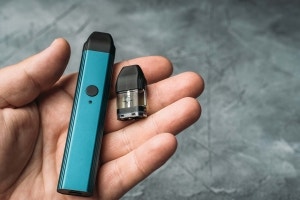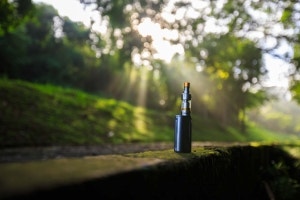Promising Hope for CBD Industry: THC-Free Plant
Could a new way to farm CBD be on the way?

CBD, or cannabidiol, has grown exponentially in popularity over recent years, emerging as a pivotal player in the wellness industry. From health supplements to beauty products, CBD has found its niche due to its touted therapeutic potential, bringing about a burgeoning market that is only set to grow.
However, as a fledgling industry, the rules and regulations surrounding CBD are still in their infancy and are a complex, ever-evolving landscape. This has led to hurdles and grey areas for both consumers and producers alike, with the presence of THC, or tetrahydrocannabinol, in the cannabis plant posing a particular challenge.
What is CBD and why is THC illegal?
CBD, also known as Cannabidiol, is one of over a hundred compounds identified within the cannabis plant, collectively known as cannabinoids. Unlike its more infamous cousin, THC (Tetrahydrocannabinol), CBD does not induce any psychotropic effects. It means you can't get 'high' from consuming CBD, as it doesn't interact with the same receptors in the brain as THC. Instead, CBD is being studied for its potential health benefits, including relief from symptoms of anxiety, chronic pain, and various neurological disorders.
Now, let's turn to THC. Whereas CBD is the non-psychoactive component of cannabis, THC is just the opposite. It's the primary compound responsible for the 'high' people experience when they consume marijuana. Herein lies the core difference between the two cannabinoids: one gets you high (THC), and the other doesn't (CBD).
In the United Kingdom, the law around THC is quite strict. While CBD is legal and widely available, THC is classified as a controlled substance under the Misuse of Drugs Act 1971. This means that products containing more than 0.2% THC are illegal. The rationale behind this stems from the psychoactive nature of THC that effects perception and creates euphoria, which the UK government believes has the potential for misuse and could pose a risk to mental health.
Current Problems for CBD Farmers
Hemp farmers in the UK face a unique set of challenges related to CBD cultivation. Hemp, despite being a variety of the Cannabis sativa plant, boasts a low THC content, usually falling below the legal limit of 0.2%, making it a theoretically ideal source for CBD. However, current regulations pose a significant hurdle.
The law in the UK permits hemp cultivation only for the purpose of harvesting the seeds and fibres, parts of the plant where CBD is scarcely found. It is illegal to extract CBD from the leaves and flowers of the hemp plant, which are the most CBD-rich parts. These restrictions are likely due to concerns about the possible presence of THC.
Despite the low THC content usually found in hemp, there's a fear that allowing CBD extraction from the plant could inadvertently facilitate THC production, given the complexity of controlling and monitoring THC levels. This presents a legal conundrum, as THC is a controlled substance under the Misuse of Drugs Act 1971. As a result, UK hemp farmers find themselves in an unfortunate situation where they can grow the plant but are unable to utilise its full potential due to legal restrictions, posing a significant barrier to the growth and development of the UK's domestic CBD industry.
A New Potential CBD Plant Discovered in Brazil
A ground-breaking discovery has recently been made in Brazil that could significantly transform the CBD industry. Brazilian scientists have discovered a plant, a type of evergreen shrub known as the Jamaican Nettletree, that astonishingly contains only CBD, with no trace of THC. This is a revolutionary find, as it means the plant can potentially be farmed to produce CBD extracts without the legal complication of THC presence. While the data is yet to be published and it is still early days, this finding certainly offers a promising ray of hope for the beleaguered CBD industry, potentially opening up new avenues for legal, THC-free CBD production.
Conclusion
In the rapidly evolving world of CBD, the discovery of the THC-free Jamaican Nettletree could very well be a game-changer. This plant's ability to offer pure CBD extracts could potentially sidestep the legal restrictions that have hampered the growth of the CBD industry, specifically those related to THC.
While we're still awaiting the full research and data publication, the potential implications of this discovery are undeniable. The prospect of being able to cultivate and extract CBD without any traces of THC is a significant stride forward. It's an exciting time for the CBD industry, and we eagerly look forward to further developments in this field.
As always, we remain committed to staying abreast of these advancements and delivering only the highest quality, legal CBD products to our customers.











